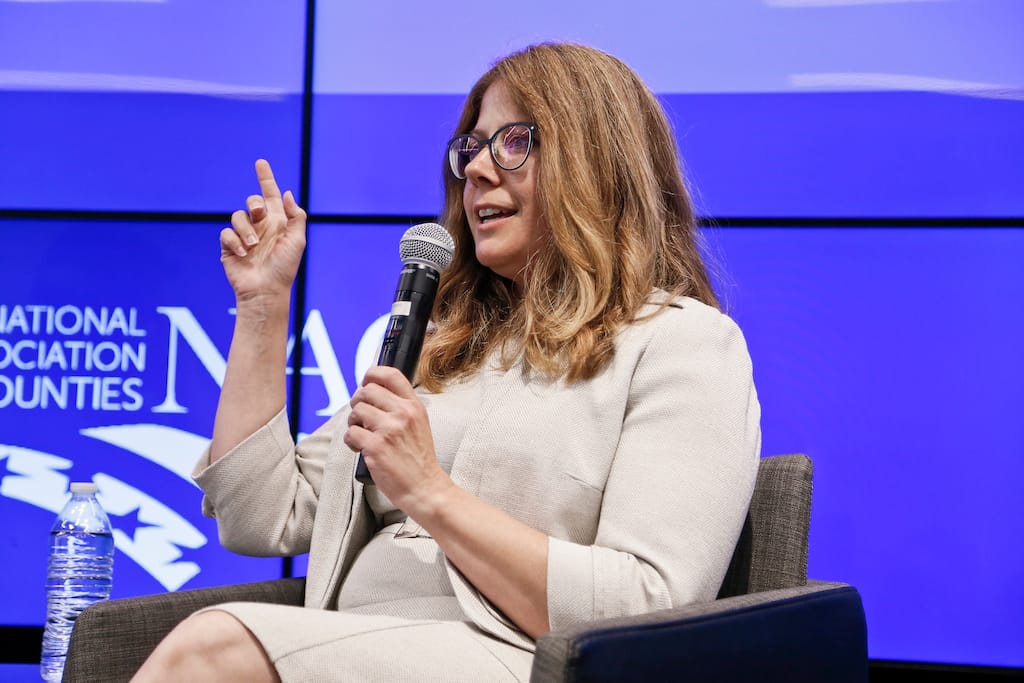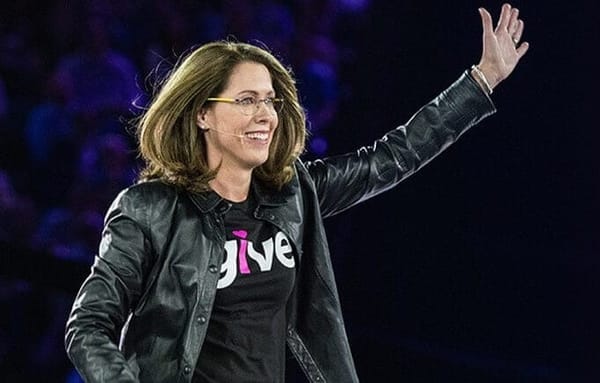NTIA Announces Middle Mile Funds, NDIA Director on Closing Digital Divide, More Tribal ACP Outreach Funds
Nearly $50 million will go to middle mile projects in four states.

September 7, 2023 – The National Telecommunications and Information Administration announced Wednesday nearly $50 million for middle mile broadband projects.
The money, provided by a $1-billion middle mile program under the Infrastructure, Investment, and Jobs Act, will go to four organizations in as many states and fund over 500 miles of new fiber cable.
Middle mile infrastructure runs between communities and connects the internet backbone to “last mile” builds – fiber connections to individual homes and businesses.
Funds were awarded to municipalities and providers in New Hampshire, Tennessee, Virginia, and Wyoming. New Hampshire’s Grafton County received almost $12 million for over 200 miles of fiber.
“For years, Granite Staters have pushed to expand high-speed access to every family and community,” New Hampshire Senator Maggie Hassan said in a statement. “We are now making that a reality.”
Over $980 million in middle mile program funds have now been allocated. The NTIA said in a press release that no additional awards will be announced.
Industry leaders have expressed doubts about whether $1 billion will be enough to build out the middle-mile infrastructure necessary to provide broadband to all Americans.
NDIA director says fiber alone is “not enough” to bridge digital divide
Expanding fiber infrastructure is not enough to bridge the digital divide, Angela Siefer, executive director of the National Digital Inclusion Alliance, said on Wednesday.
She cited the fact that 25 percent of urban households do not have a broadband subscription. Because infrastructure is readily available in urban areas, this is evidence that other factors need to be addressed to expand broadband adoption, according to Siefer.
“Fiber alone will not solve the digital divide,” Siefer said at a Fiber Broadband Association webinar. “We have to address the other barriers that are keeping people from subscribing, which are cost, digital skills, and the right devices.”
Siefer cited the Federal Communications Commission’s Affordable Connectivity Program – a monthly internet subsidy for low-income households – as key to addressing the cost component.
She also pointed to the Digital Equity Act, a part of the Infrastructure, Investment and Job Act that sets aside over $2.7 billion for digital equity initiatives. This could include efforts to address the digital skills and device components of the digital divide, like community education programs and device discounts.
This will be important, but is likely still not enough to meet the needs of people who lack meaningful broadband access, Siefer said.
“It’s a lot of money, but it’s still not going to be enough,” she said. “It’s not enough to teach everybody in the United States how to use the internet, help them get signed up for a service, and get them a device.”
The NTIA sought comments this year on how to allocate Digital Equity Act funds. The comment period closed in May.
FCC announces more ACP outreach funds for Tribes
The Federal Communications Commission announced on Wednesday $1.2 million to spread awareness of its Affordable Connectivity Program on tribal lands.
Money was allocated to five tribes in Idaho, Hawaii, South Dakota, Oregon, and Washington, bringing the total TCOP awards to over $7 million across 25 tribes. That’s compared to over $64 million the commission has awarded to states and territories through two funding rounds.
The funds come from the Tribal Competitive Outreach Program, part of the FCC’s Affordable Connectivity Outreach Grant Program. These outreach grants are aimed at promoting the ACP in eligible communities, with TCOP funds reserved specifically for tribal governments and entities.
The ACP outreach grants are part of an FCC effort to increase program participation among the country’s roughly 48 million eligible households – only half of whom are currently receiving benefits.
The $14-billion ACP provides monthly discounts of $30 for low-income Americans and $75 for tribal residents and those in high-cost areas. It is expectedly some to run out of money in 2024.
The Infrastructure, Investment and Jobs Act of 2021 set aside $3 billion for the Tribal Broadband Connectivity Program, aimed at expanding tribal broadband infrastructure and addressing the gap in internet access on tribal lands. Over $1.7 billion has already been allocated. Applications for the program’s second round of funding are open until 2024.
The FCC has not announced a third round of ACP outreach funding and there are no concrete plans in Congress to renew the ACP.








